#Ukraine National Anthem
Explore tagged Tumblr posts
Text
youtube
Happy Independence Day, Ukraine!
Source: Hope Bandura
#Ukraine#Ukrainian Independence Day#music#Ukraine National Anthem#Hope Bandura#Bandura#video#Youtube
16 notes
·
View notes
Text
National anthem of Ukraine: Ukraine will not perish (Ще не вмерла України)
youtube
It is a tragic national anthem. Why does Russia bully Ukraine, which uses the same Cyrillic alphabet? They are called sibling languages. If you can read Russian, you can read Ukrainian. To begin with, Russia has continued to persecute Ukraine. During Stalin's time, Russia stole grain from Ukraine and millions of Ukrainians starved to death. ...It is Russia that should be destroyed.
ウクライナ国歌:ウクライナは滅びず(Ще не вмерла України)
悲壮な国歌である。ロシアは、同じキリル文字を使うウクライナを、どうしてこうも苛めるのだろう。兄弟言語と言われるのに。ロシア語が読めれば、ウクライナ語は読める。そもそも、ロシアはウクライナを迫害し続けてきた。スターリンの時代、ロシアはウクライナから穀物を強奪して、数百万人のウクライナ人が飢え死にした。・・・滅びるべきはロシアである。
#National anthem of Ukraine#Ukraine#Russia#Babylman#sibling languages#Stalin#grain#Youtube#Cyrillic alphabet
5 notes
·
View notes
Text
two years have already passed...
today, two years ago, all of Ukraine woke up to explosions, sounds of flying fighter jets, gunshots and screams of terror. today, February 24, is the anniversary of russia's invasion of Ukraine. full-scale invasion, escalation of ten-year genocide. I can't explain the feeling when I first saw wounded people, when I first heard a rocket flying overhead aimed at a residential building.
it is emotionally difficult to comprehend all the terrible events that happened during this time. everything I'm trying to cover here as soon as I get my thoughts together. and everything that I don't have enough strength for...
Bucha massacre
Mass burials in Izium
Mass execution of Ukrainian prisoners in Olenivka
The tragedy of Mariupol
Defense of Azovstal
Bakhmut Fortress
Ecological disaster in Kakhovka
The tragedy of Hroza
Tens of thousands of Ukrainian children forcibly deported to russia
Torture of civilians
The battle for Donetsk Airport
The Ilovaisk Tragedy
russian manipulation and propaganda
burning Ukrainian books, destroying Ukrainian museums and entire cities, torturing people for tattoos connected to Ukraine. forced re-education of children and adults who are forced to learn the russian national anthem, worship portraits of putin every day and receive russian documents in order to receive water and food in the occupied territories. daily shelling and casualties, daily struggle for survival and freedom, which russians want to take away from us.
all the terrible cases of execution of Ukrainian soldiers: beheadings, castration, amputation of limbs, execution of prisoners. burning civilians alive, raping women, men and children, torturing even animals, even little mice. tons of photos and videos that I don't want to add here because even the slightest glimpse of all those images breaks my heart and causes me to have a panic attack. however, you can find it all freely available on the Internet by simply typing in keywords.
instead, I would like to show photos of rallies in support of Ukraine, which took place today all over the world. to find out where each photo is from, see the alt text for them.

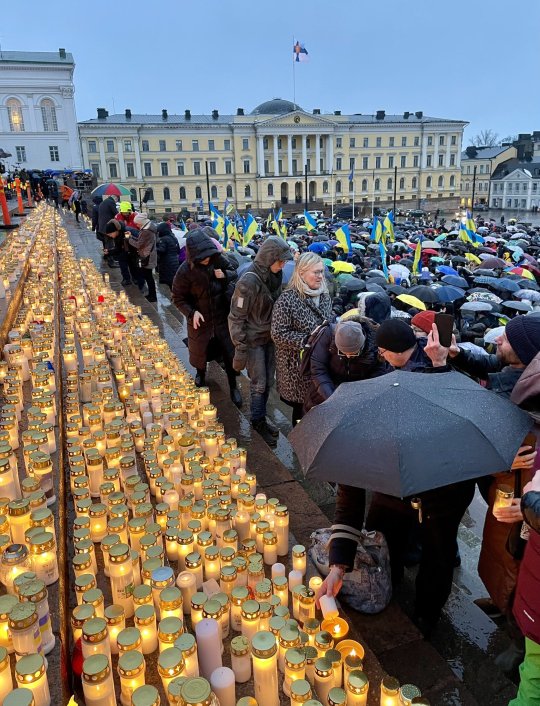
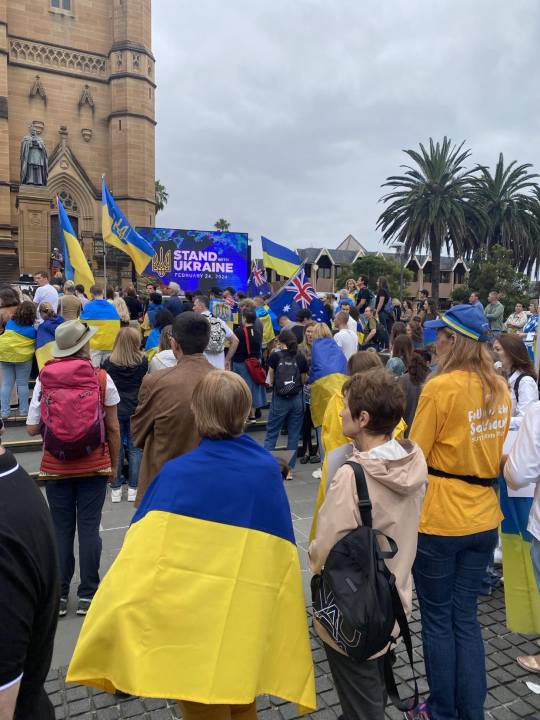

despite the fact that in russia they celebrate the war, Ukrainians, who were forced to flee from the war, gathered at rallies around the world, together with residents of the countries that gave them shelter. the civilized world expresses sympathy and grief, with calls to provide arms to Ukraine so that we can defeat russia as soon as possible and return peace to our lives.
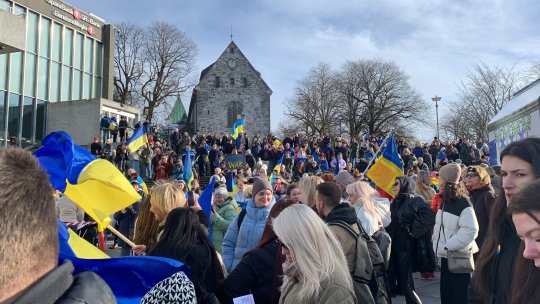
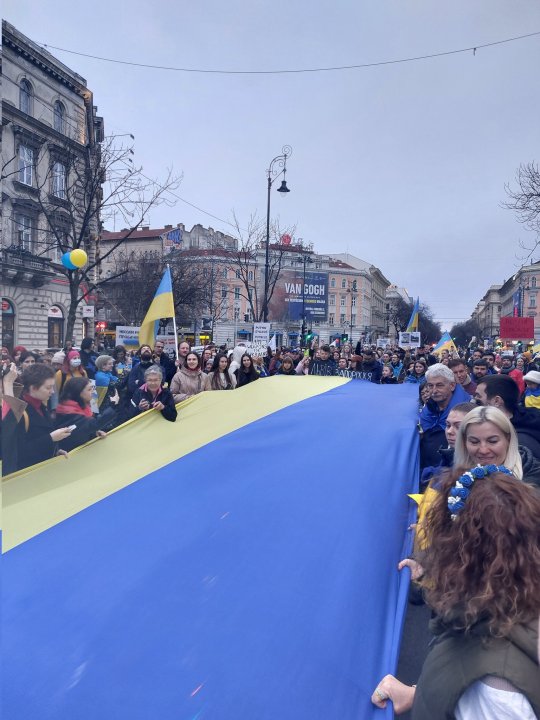

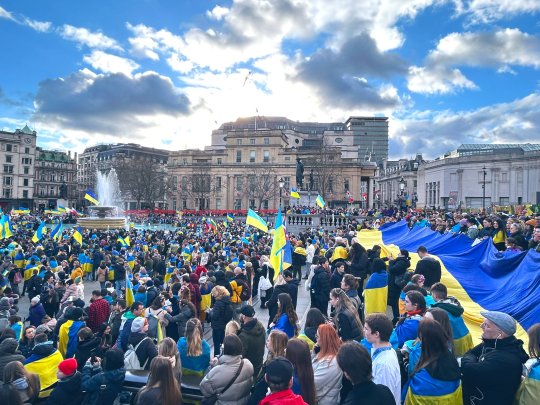
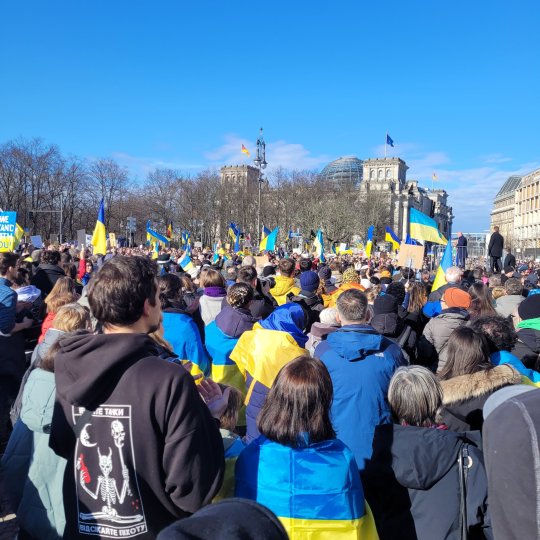

it's sad that more photos can't be added to show as many cities as possible that came out to support us today. but I've been looking at all the photos and videos of the rallies all day today and I have tears of gratitude in my eyes. thank you all for continuing to stand with Ukraine!
#stand with ukraine#russia is a terrorist state#help ukraine#support ukraine#save ukraine#stop russia#fuck russia#russian agression#russian invasion#russian culture#russian art#russia#russian terrorism#ukraine#signal boost#rally#russian war crimes#war in ukraine#war
345 notes
·
View notes
Text
Six months into the Russian occupation of the Ukrainian city of Kherson, in September 2022, the director of Liza Batsura’s college arrived at the dormitory where Batsura lived and told the students to pack up their things: They were going to Crimea. If the students refused, they would be put in the basement, Batsura said, speaking through a translator. The director gave no further explanation.
The next evening, they were taken to a camp called “Friendship” in Crimea, which was occupied by Russia in 2014. Although she couldn’t have known it at the time, Batsura—now 16 years old—was one of almost 20,000 children the Ukrainian government estimates have been deported or forcibly displaced to Russia. Only 388 have been returned.
Initially, the prospect of a couple of weeks by the sea didn’t sound so bad. But Batsura quickly began to realize that that wouldn’t be the case. The food was terrible, the days were long, and the children were pressured to sing Russian songs, including the national anthem, which made her very uncomfortable.
Foreign Policy is unable to independently verify Batsura’s account, but her experience closely tracks with the findings of investigations by the United Nations as well as researchers at Yale School of Public Health and other human rights groups who have documented a “systematic” effort to relocate and reeducate thousands of Ukrainian children over the course of the war. She also recounted her story to Reuters as part of an extensive investigation into the deportations.
Batsura was one of five Ukrainian teenagers who visited Washington last month with representatives of Save Ukraine, a Ukraine-based nonprofit that helps to rescue Ukrainian children from Russia and the territories it occupies. They stoically recounted the stories of their abductions again and again for journalists, members of Congress, and attendees at public events.
It was the group’s first visit to Washington. Batsura felt like she was in a movie, she said.
With long limbs and round cheeks, the teenagers filed into the conference room of a Washington-based nonprofit with their minders from Save Ukraine for an interview with Foreign Policy. Once the Wi-Fi password had been secured and the bathroom located, they began to tell their stories.
They were teenagers like any other you’d see hanging out with friends at a cafe or shopping mall. Yet they were also victims of Moscow’s large-scale deportation of Ukrainian children—a potential war crime and the reason that the International Criminal Court (ICC) issued arrest warrants for Russian President Vladimir Putin and the country’s children’s rights commissioner, Maria Lvova-Belova, in March 2023.
Like Batsura, they all hail from regions of eastern Ukraine that were quickly occupied by Russian forces in the early days of the war. They recount being coerced or forced, sometimes at gunpoint, to go with Russian forces, and they were taken to schools and summer camps where they were held for several months and faced pressure to accept Russian citizenship.
In many instances, Ukraine’s most vulnerable children have borne the brunt of Russian deportation. Before the war, Ukraine had one of the highest rates of child institutionalization in Europe, with more than 100,000 children living in residential institutions. The vast majority have living parents but were placed in institutions because of poverty, difficult family circumstances, or because the child had a disability, according to Human Rights Watch.
The deportations have been carried out in plain sight. Early in the war, Putin signed a decree making it easier for Ukrainian children to be adopted and to be given Russian citizenship. Lvova-Belova herself claims to have adopted a teenager from the besieged Ukrainian city of Mariupol, and she has spoken publicly about her efforts to Russify him. In November, a BBC investigation found that a 2-year old girl who went missing from a children’s home in Kherson when she was just 10 months old had been adopted by 70-year-old member of the Russian parliament, Sergey Mironov.
Lvova-Belova has made a number of visits to institutions holding Ukrainian children, including to a college in the occupied Ukrainian city of Henichesk, where Batsura had been transferred from Crimea and placed in a culinary arts program.
The dormitory where Batsura was placed was freezing cold at night, she said, and the teenagers were forbidden to close the doors to their rooms. Russian troops patrolled the halls.
Lvova-Belova offered the children 100,000 rubles, roughly $1,000, and the opportunity to study at a college in Russia on the condition that they remain there. Batsura refused. Officials tried to find her a foster family, and she feared she would be sent to a remote region of Russia and would never be able to return to Ukraine.
For eight months while she was in Russian custody, Batsura had been unable to contact her mother, but she learned through a friend that her mother was working with Save Ukraine and applying for a passport so that she could travel to Russia and collect her.
With the border to Russia closed since the invasion, families face a daunting overland journey through wartime Ukraine, traveling into Poland, Belarus, and then Russia and—in Batsura’s case—down into occupied Ukrainian territory.
In some instances, children are turned over to their relatives without too much difficulty once the family members arrive to collect them, but the Russian authorities have also been known to present obstacles, said Olha Yerokhina, a spokesperson for Save Ukraine. The organization has helped families retrieve 240 children to date.
Officials at the school told Batsura that the journey was too arduous and that her friend was giving her false hope that her mother would ever arrive. “I didn’t believe them, and I kept telling myself that ‘No, my mom can do it, my mom will come,’” she said.
In May 2023, Batsura was rescued by her mother and now lives with her in Kyiv, where she is working with psychologists to process her experience. She is back in school and describes her hobbies as writing poems and making TikTok videos.
I asked her, given the atrocities that Putin has been accused of committing in Ukraine and during his presidency, how she felt about the fact that it was experiences like hers that had led the ICC to issue an arrest warrant for the Russian leader.
Yerokhina, who acted as our translator, interrupted to say that because she was rescued after the court order was issued, Batsura had likely missed the news about the ICC arrest warrant.
After Yerokhina explained the court’s decision, Batsura said, “It’s just.”
149 notes
·
View notes
Text
Sunday sounds - there is something about Europe
Today, there's something about Europe, on this page. Since Thursday (with the Dutch) and until tonight, it's Vote Day for the EU Parliament, and also local elections in my country.
EU's official anthem is Beethoven's Ode to Joy since 1985, and how could it be otherwise, after the terrible Jahr Null/Year Zero great reset, in the wake of the Allied Victory in World War II? It was chosen to convey a strong message about transcontinental reconciliation and hope for a still captive Eastern Bloc. As such, it is played along our national anthems at each and every National Day reception organized by a Member State and at each and every big protocol function. Sometimes, sounds do tell more about a collective will and way, than politicians or newspapers.
The EU not yet federal, but supranational system is often criticized by the citizens. It is perceived as arcane and removed from their daily life and reality. As a decent connoisseur of the BTS side of things, for more than twenty years, I can honestly say it is half earned and half the result of consistently ineffective, even imbecile PR. But as we are further exposed to the war in Ukraine, the raise of Fascism and the global tensions of this very peculiar year, people went to vote since the early morning hours, on a very hot, early summer day. Nothing better than fear to raise awareness.
There is power in numbers, as the annual performance of Beethoven's Ninth, featuring 10.000 volunteer Japanese chorists, shows us:
youtube
[if you want to know more about this extraordinary, powerful and poetic project, here is a short Deutsche Welle documentary: https://youtu.be/VjQNV9u1hzI?si=I566Mrwm1QlCE6M2 ]
I am on my way to the polling station. How about you, fellow Europeans?
59 notes
·
View notes
Text
Thousands of Ukrainian children put through Russian ‘re-education’ camps
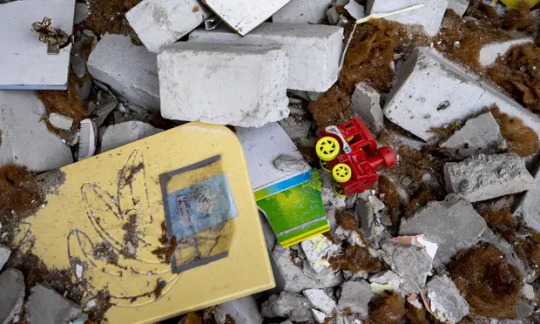
New report details network of dozens of Russian camps aimed at giving children pro-Moscow views, with some children detained indefinitely
At least 6,000 children from Ukraine have attended Russian “re-education” camps in the past year, with several hundred held there for weeks or months beyond their scheduled return date, according to a new report published in the US.
Russia has also unnecessarily expedited the adoption and fostering of children from Ukraine in what could constitute a war crime, the Yale Humanitarian Research Lab report found. The report was funded by the US state department.
Since the start of the war nearly a year ago, children as young as four months living in the occupied areas have been taken to 43 camps across Russia, including in Moscow-annexed Crimea and Siberia, for “pro-Russia patriotic and military-related education”, said the report.
In at least two of the camps, the children’s return date was delayed by weeks, while at two other camps, the return of some children was postponed indefinitely.
Russian authorities sought to provide a pro-Moscow viewpoint to children through school curricula as well as through field trips to patriotic sites and talks from veterans, the report found.
Videos published from the camps by the occupying regional authorities show children in the camps singing the Russian national anthem and carrying the Russian flag. In separate videos, teachers, employed to teach the children, talk about the need to correct their understanding of Russian and Soviet history.
Children were also given training in firearms, although Nathaniel Raymond, a Yale researcher who oversaw the report, said there was no evidence they were being sent back to fight.
“Mounting evidence of Russia’s actions lays bare the Kremlin’s aims to deny and suppress Ukraine’s identity, history, and culture,” the US state department said in a statement. “The devastating impacts of Putin’s war on Ukraine’s children will be felt for generations.”
There is little information on the explanation given to children regarding delays in their return. An official at the Medvezhonok camp told a boy from Ukraine that his return was conditional: the children would be returned only if Russia recaptured the town of Izium, the report said. Another boy was told he wouldn’t be returning home due to his “pro-Ukrainian views”, the report said.
Some parents were told that their children will be released only if they physically come to pick them up. Relatives or people given power of attorney were not allowed to pick up the children. Travel from Ukraine to Russia is difficult and expensive, and men between the ages of 18 and 60 are forbidden from leaving the country, in effect meaning only the mothers of the children may retrieve them.
“A significant portion of these families are low-income and have not been able to afford to make the trip. Some families were forced to sell belongings and travel through four countries to be reunited with their child,” the report found.
One of the camps is located in Magadan oblast, roughly 6,230km (3,900 miles) from Ukraine. This puts it “roughly three times closer to the United States than it is to the border of Ukraine,” the report said.
Raymond said that Russia was in “clear violation” of the Fourth Geneva Convention on the treatment of civilians during war and called the report a “gigantic Amber alert” – referring to US public notices of child abductions.
The Russian activity “in some cases may constitute a war crime and a crime against humanity”, he told reporters.
Ukraine’s government recently claimed that more than 14,700 children had been deported to Russia, where some had been sexually exploited.
(continue reading)
#politics#ukraine#russia#genocide#war crimes#erasure#crimes against humanity#russia is a terrorist state#reeducation camps
487 notes
·
View notes
Text
There’s a certain type of rage I feel when I see people, particularly westerners, insinuate or call Ukrainians warmongers or blood thirsty. Because while I don’t speak Ukrainian (yet) I did grow up with the songs, which my father translated to me, and with that told me the history and stories of them. Indeed, many of these songs could be called “war songs,” but while the British sang of the glorious kings and queens, Kozaks sang of lovers unfairly parting. While the French sang of their assured victory and superiority, Ukrainians sang of a mother’s bitter tears as she saw her son leave for battle, a battle that they had to fight century upon century, because others would not let their people and nation live. While Americans sang “God bless America” and saluted their country as the land of the free, a kozak looked up at the sky and cried that he would never be buried in his homeland, for he had to fight for it to be free.
Ukrainians have always fought, Ukrainians will always fight, but do not mistake their resolve for a love of war or lust for blood. Ukrainians fight because that’s what it took to survive. Ukrainians fight because they refuse to let go of freedom. Freedom which for us in the west, is such an abstract concept, but for those in Ukraine, and places like Ukraine, is as material as blood itself.
Ukrainians don’t sing about the glory war brings, nor triumphant hymns to their victories, nor how others bow to them. Ukrainians sing of the bitter sacrifices, the constant heartache, the longing for freedom. And even still, Ukrainians fought even when they weren’t promised victory like other nations, because as the anthem promises, they will lay down their souls and bodies for their freedom. Unlike the west, and Russia, they do not fight to sing their songs; Ukrainians fight so those songs don’t have to be sung again.
253 notes
·
View notes
Text
Today it’s the 24th of February, 2 years after the full-scale war started in Ukraine. Most know that this isn’t completely out of the blue, since Crimea was invaded 10 years ago, but let’s go back even further.
During the first world war, Ukraine was torn to pieces, literally, it was occupied by Poland, Russia, France, anarchists, and the Whites, Kyiv changed hands over five times in a year, communication inside and outside the country was almost completely cut off.
This war eventually resulted in the Soviet Union occupying Ukraine. Due to this Ukrainian people fought in the Soviet army. At the end of the war Ukraine did gain some independence, for some decisions, such as being accepted into NATO as Ukraine, rather than as the Soviet Union.
On the 21st of January 300 000 Ukrainians lined themselves up between Kyiv and Lviv, forming a human chain for independence and on the 24th of August Ukraine declared itself independent from the Soviet Union.
In 2004 there were presidential elections between Yushchenko and Yanukovich, in which Yanukovich won, however the results were falsified, and the Ukrainians protested for 2 months, this is known as the Orange revolution. The protestors won, and the elections were re-done, where Yushchenko won fair and square.
6 years later there are new elections, in which Yanukovich wins, again, fairly. He promised that he’d integrate Ukraine with Europe and join the EU. However, in 2013 when he was about to sign the agreements to improve relations with the EU, he made a complete 180 degree turn, and spoke about rebuilding relations with Russia. This, naturally made upset the Ukrainians very upset, so they protested for three months straight. They’d eat and sleep on the streets to protest every minute of every day and night, this resulted in police brutality. Every February 20th the people lost during these protests are mourned for their sacrifices for Ukraine’s freedom.
Yanukovich, unable to resist these protests fled the country, While the population was looking for a new president Russia invaded Crimea, there was a referendum, which was accepted due to the pressure and the country we are dealing with, Crimea was taken, and soon the fight over Donetsk and Luhansk begins.
Then, on the 24th of February, the full-scale invasion begins. Ukrainians have fought strongly, never ever giving up, fighting for there freedom, for the freedom of Europe, fighting for the truth and honesty Russia has yet to show. Take a minute today, after reading this far (thank you for still sticking around!) and thank the Ukrainians who have lost their lives in these battles, those who have lost their lives in merciless attacks, and those left behind.
Now, let’s listen to the experiences of one awesome Ukrainian: Living in war is terrifying, “you stop caring about food, sleep. Just staying alive, only thing that matters. We [Ukrainians are] Europeans. We’re not Russia. We died for this, and we continue to fight, every day, for this. We’re not just some people dying somewhere. We are real! We have our language, our songs, our fairytales. We exist. We matter.
Finally, a line from the Ukrainian anthem: "Душу й тіло ми положим за нашу свободу, І покажем, що ми, браття, козацького роду” Meaning “We'll lay down our souls and bodies to attain our freedom, And we'll show that we, brothers, are of the Cossack nation” Слава Українi!
41 notes
·
View notes
Text
Living in the reality where we welcome such news because, at least, the atrocities committed by russians against Ukrainians get acknowledged.
'The Reintegration Ministry reported on March 29 that over 19,000 Ukrainian children have been forcibly deported to Russia.
The National Resistance Center reported on April 12 that over 100,000 Ukrainian children from Donetsk and Luhansk oblasts have been transported to Russia under the pretext of receiving "medical treatment."
Kidnapped children face punishment for calling themselves Ukrainians or refusing to sing the Russian national anthem. Children that have been safely brought back to Ukraine recounted instances of beatings and other punishments.'
232 notes
·
View notes
Text
My next post in support of Ukraine is:
Tonight's post to my Ukraine thread is going to be a little different. It was an idea from @princess-stefan-3cy . They thought it would be nice to share some patriotic Ukrainian songs. So the first one is......
Марш нової армії (The March of the New Army). It's a modernized version from 2017 of the "March of the Ukrainian Nationalists" from 1929 & is to honor soldiers of the Ukrainian Armed Forces who died in the Donbas War.
youtube
This next song is called Гей степами (Hey steppes). It sings about "Every enemy comes to free us, and steals the land for himself." Pretty much what Ukraine has dealt with for centuries.
youtube
This next song is a bit more humorous and is making fun of the invaders.
youtube
This song I'm going to share two different versions of. Ой у лузі червона калина (Oh, there is a red viburnum in the meadow). This song was used by Sich Rifleman during the Ukrainian People's Republic & I believe it is banned in "russia."
youtube
The other version of Ой у лузі червона калина that I absolutely love and was the first version I ever heard of the song is this one.
youtube
And, I also want to re-share this video about the beautiful Ukrainian musical instrument, the bandura.
youtube
Here's another Ukrainian folk song played on the bandura. "In the Cherry Garden."
youtube
Of course, this thread of patriotic Ukrainian songs would not be complete without the Ukrainian National Anthem. "Ukraine is not yet lost."
#StandWithUkraine
#СлаваУкраїні 🇺🇦🌻
youtube
I just found another beautiful bandura video, so I'm adding it to the thread.
youtube
Thank you for this idea, @princess-stefan-3cy
27 notes
·
View notes
Text

Oleksandr Demenko joined the Armed Forces of Ukraine in his second year at the Faculty of Management at the Zaporizhzhia Institute of Economics and Information Technologies. From 2019 to 2021, he served in the Air Force. In 2021, he signed a contract and joined the 9th Operational Regiment of the National Guard of Ukraine (later to become the 15th Brigade of the Kara-Dag Offensive Guard). During the defence of Mariupol, Oleksandr was injured and spent more than a year and a half in Russian captivity – from May 17, 2022, to January 31, 2024.
Life in captivity
Interview conducted by Kostyantyn Grechany K.G.: How were you treated in captivity? O.D.: We were held by the Russians, who called themselves “DPR” (Donetsk People’s Republic). Basically, they fed us, but the attitude was, how can I tell you… There was moral pressure, and physical pressure, regular interrogations, beatings. International humanitarian organisations were not allowed to visit us. The beatings were so-called “regular”, i.e. for non-compliance with the rules of detention. Someone fell asleep at the wrong time, someone did something in the house contrary to their routine – they regularly beat them for that. We were also beaten for not knowing the anthem of the Russian Federation, for not learning Soviet poems and songs that they forced us to learn (we were always walking around in the organised pattern listening to Soviet songs). Of course, there were beatings during interrogations. There was also an operational department where prisoners were selectively taken in order to tell them who did not follow their “rules of detention”. They asked them to inform on each other. K.G.: Were representatives of the “KGB of the DPR” present during these conversations? O.D.: No, there were only colony employees there. Actually, it went on like that until January 23, 2024, when we were transferred to Taganrog [a city of regional subordination in the Russian Federation – ed]. There we were beaten several times a day. There, the treatment was worse than brutal. The food was terrible, and very little food was given, the conditions were terrible. All the clothes were ragged, there was no heating (and I need to remind you, it was January), no hygiene, no medical care. While in Horlivka, we could somehow adapt and survive, but in Taganrog, it was a complete nightmare. K.G.: How long did you stay in Taganrog? O.D.: I stayed in Taganrog for a week, during which I learned all the nuances of being in Russian captivity. When we arrived, we were beaten so badly that we couldn’t even walk or sit. I can’t even imagine what it was like for the guys who spent all their time in captivity there. They told me such things as torture with a stun gun and a tapik. It’s a device like a dynamo from a field phone with a high current. You are connected to it and turned around so that a current passes through your body. It’s worse than a stun gun.
Source: Mariupol defender: surviving in captivity for over 1.5 years
#Ukraine#russia is a terrorist state#POW#war crimes#human rights#russian war crimes#interview#excerpt#article in link#russian captivity
15 notes
·
View notes
Text
Never believe Russian narratives about Ukraine
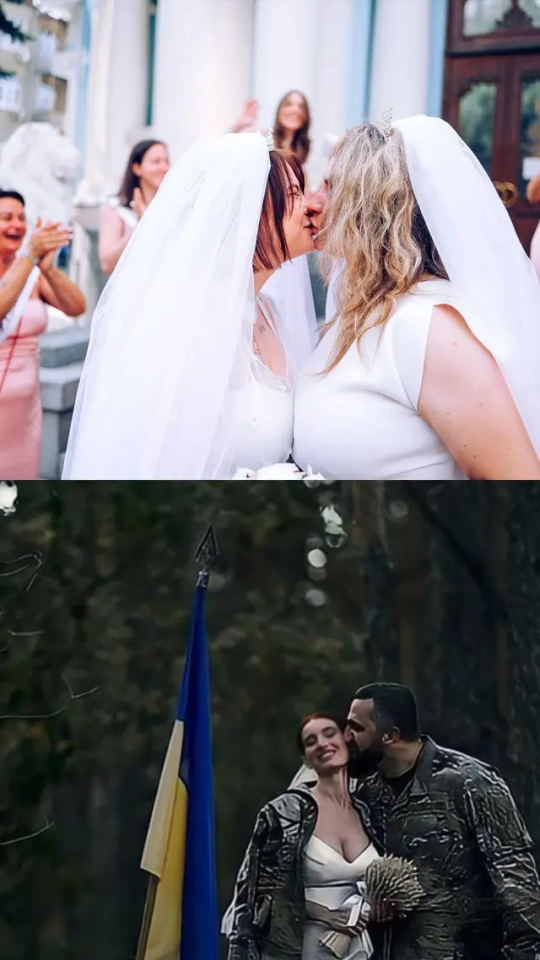
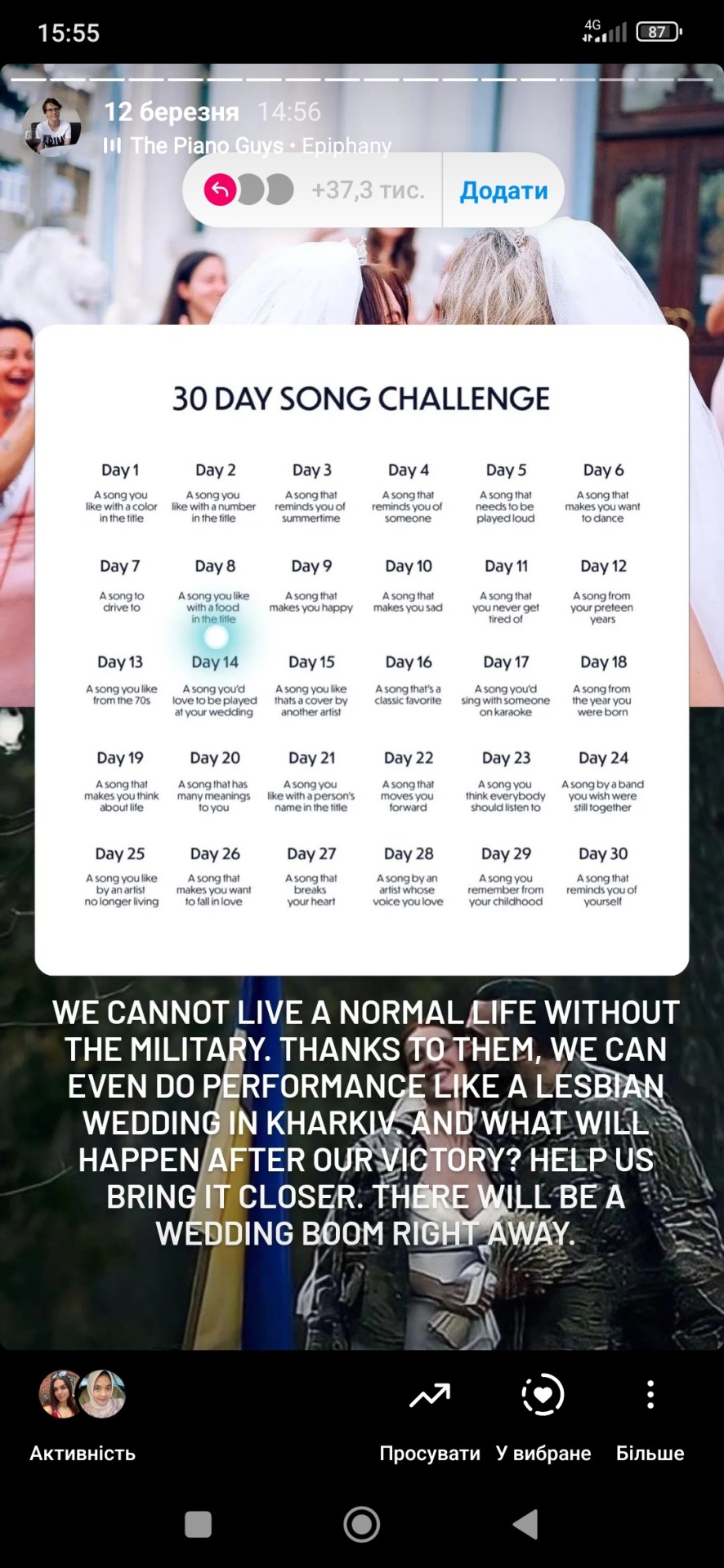
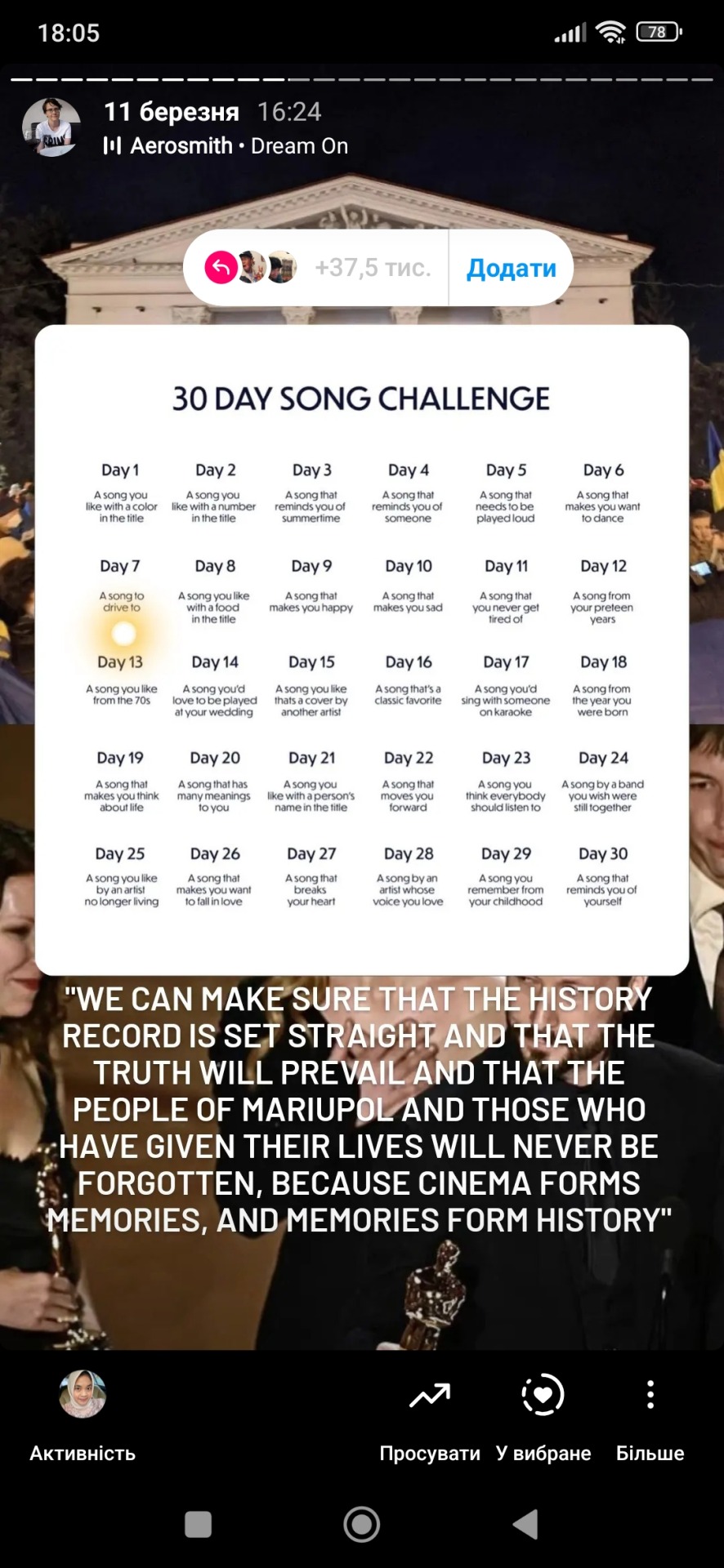
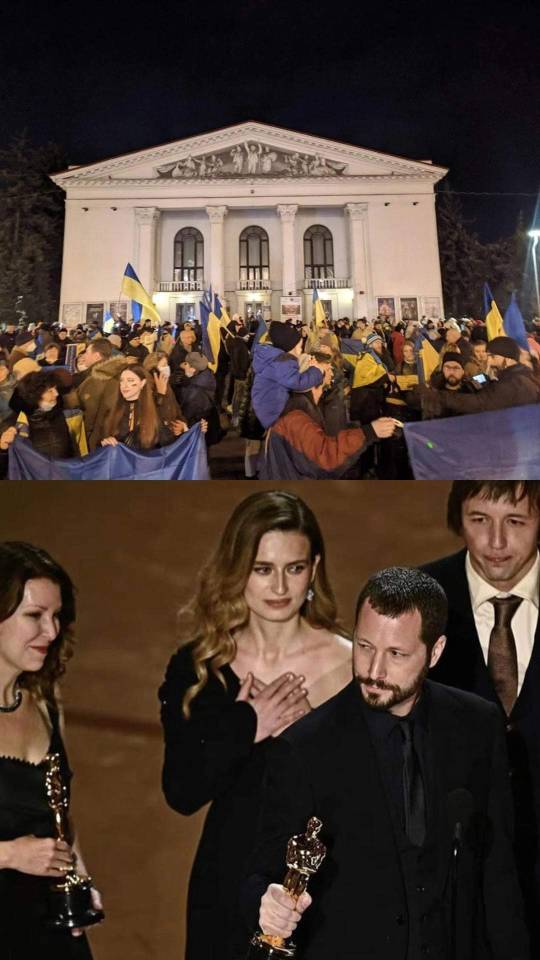
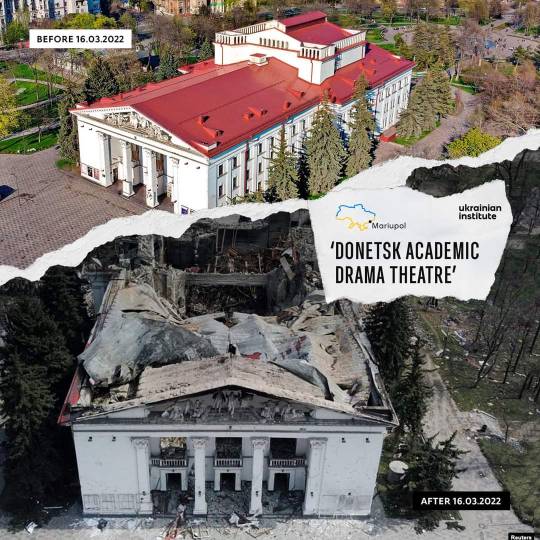
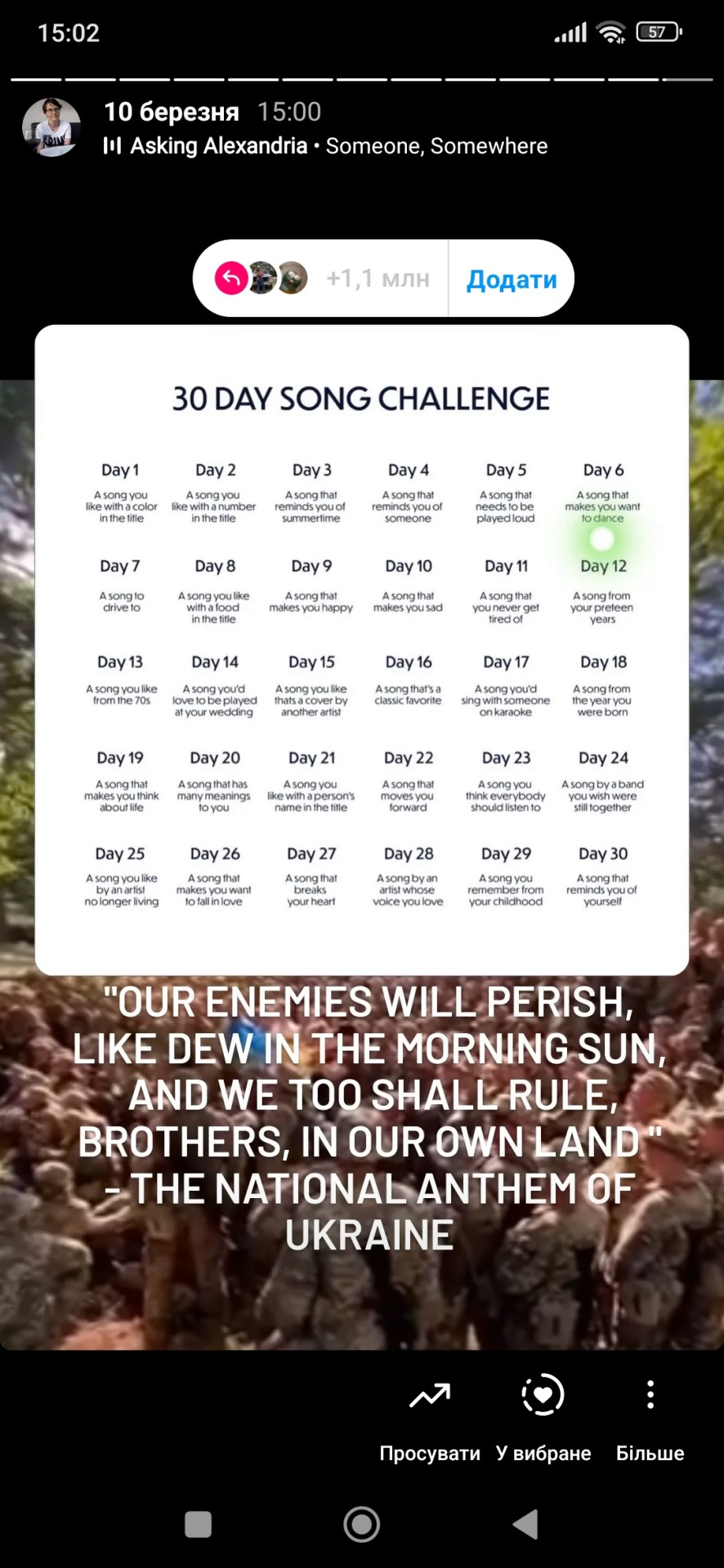
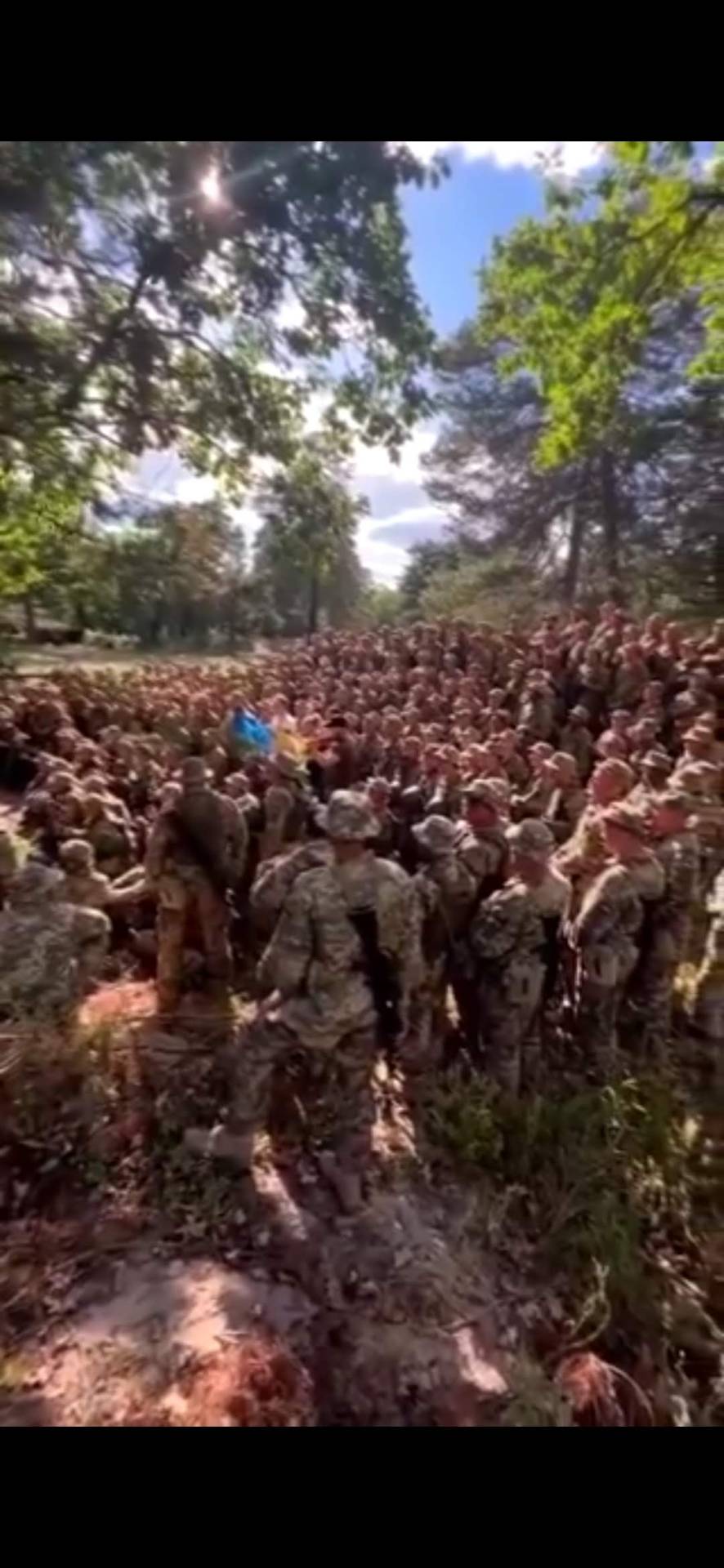
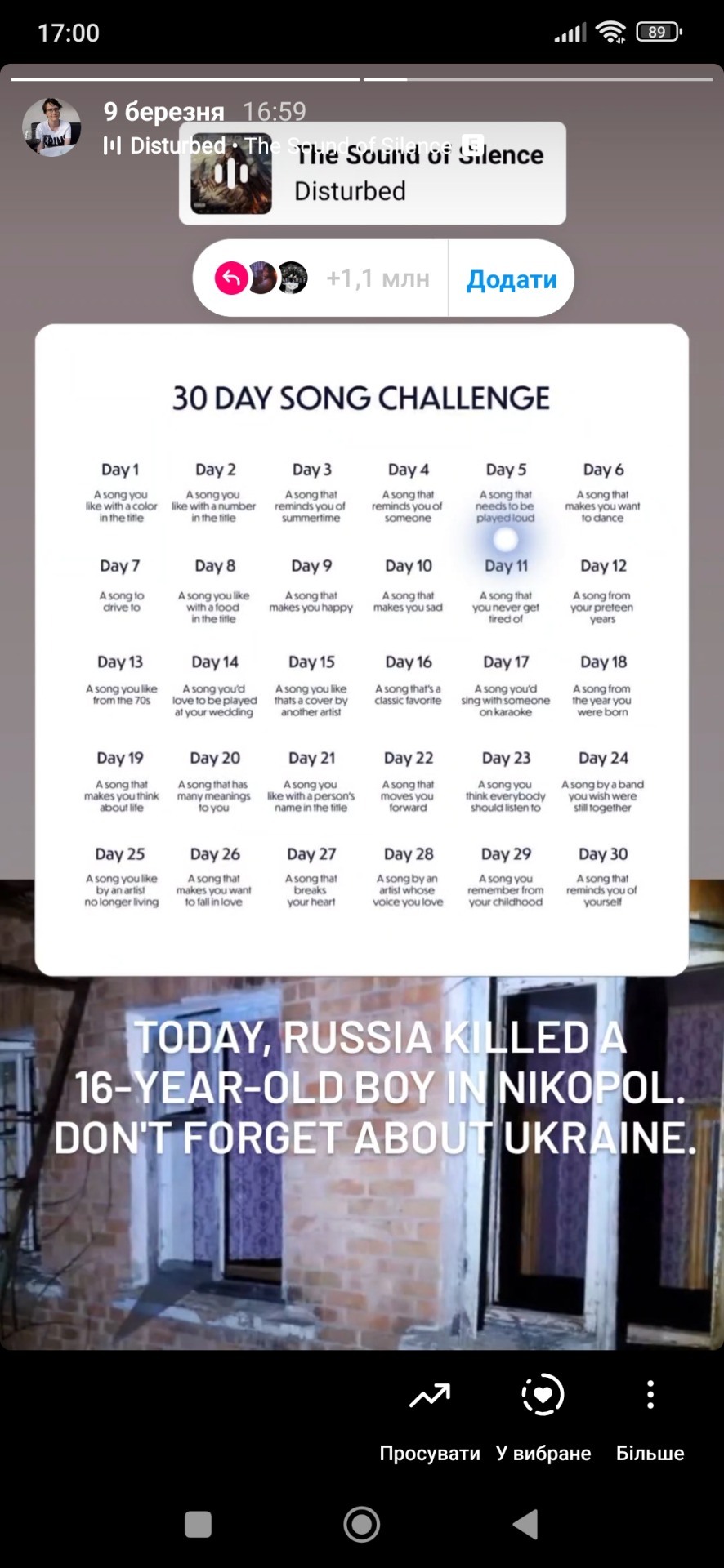
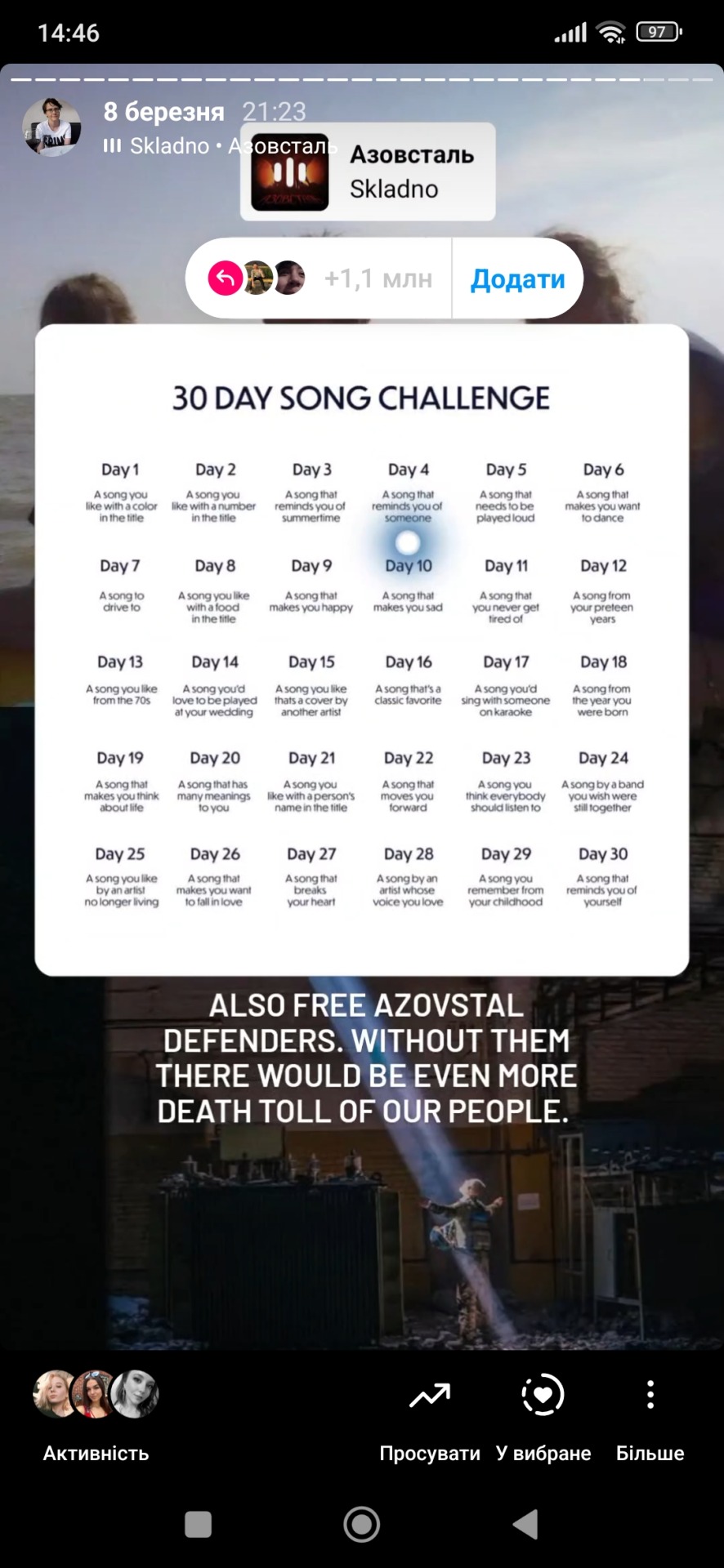
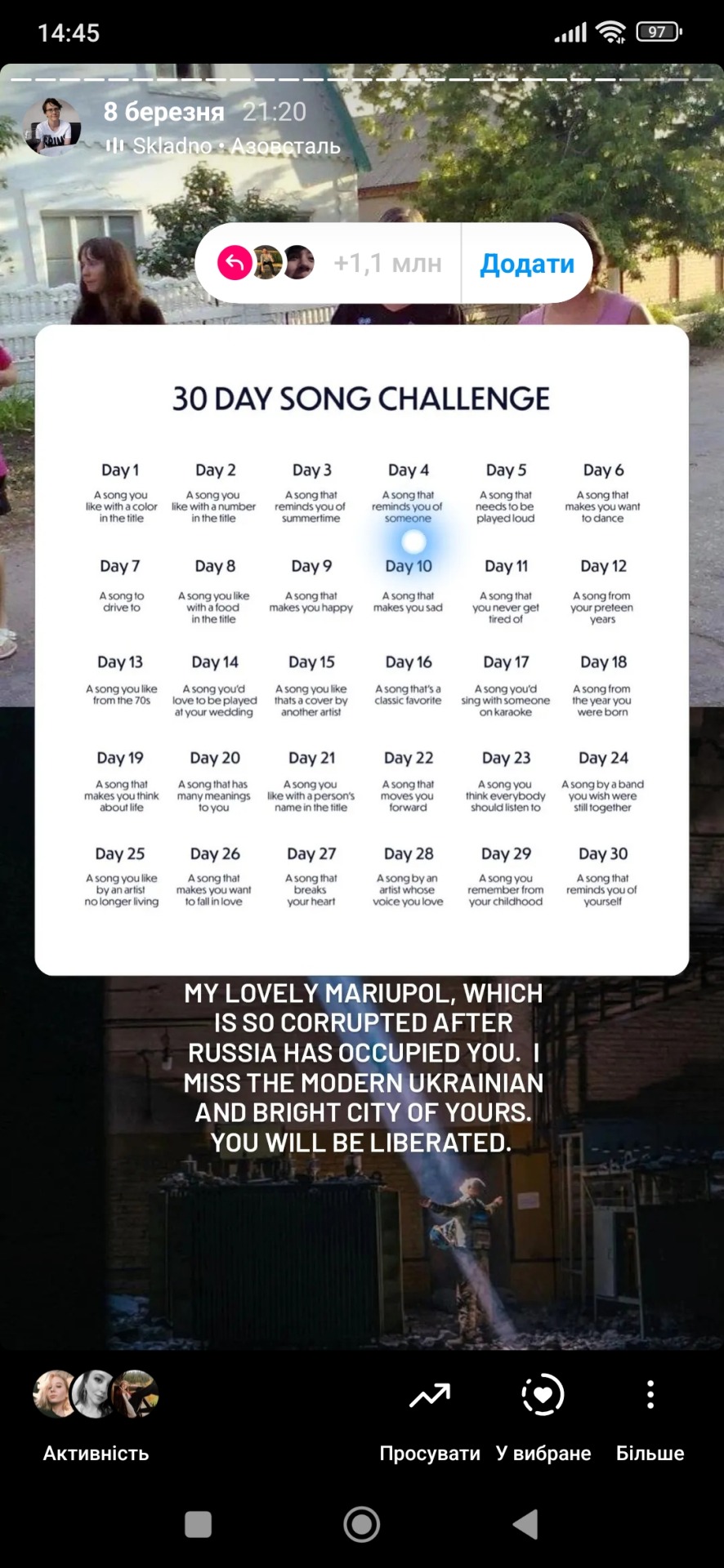
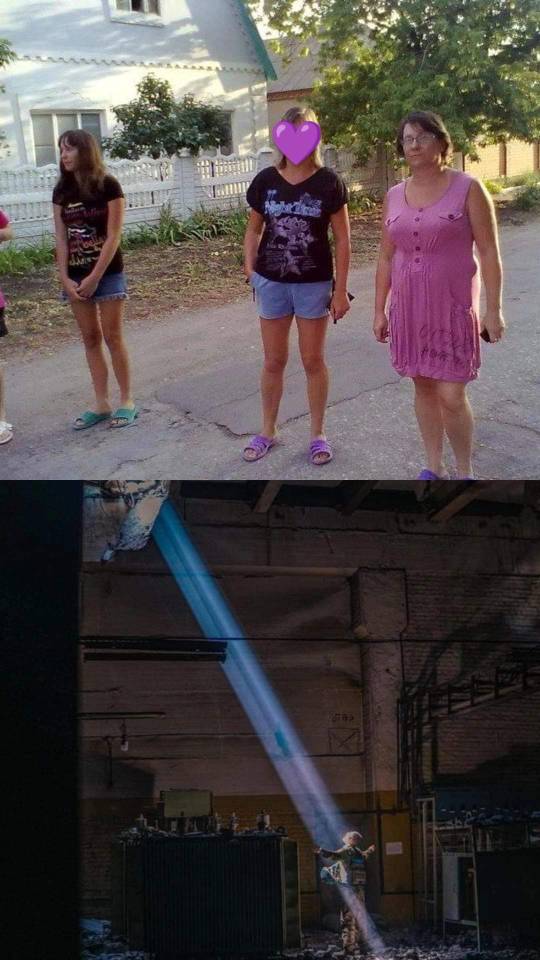
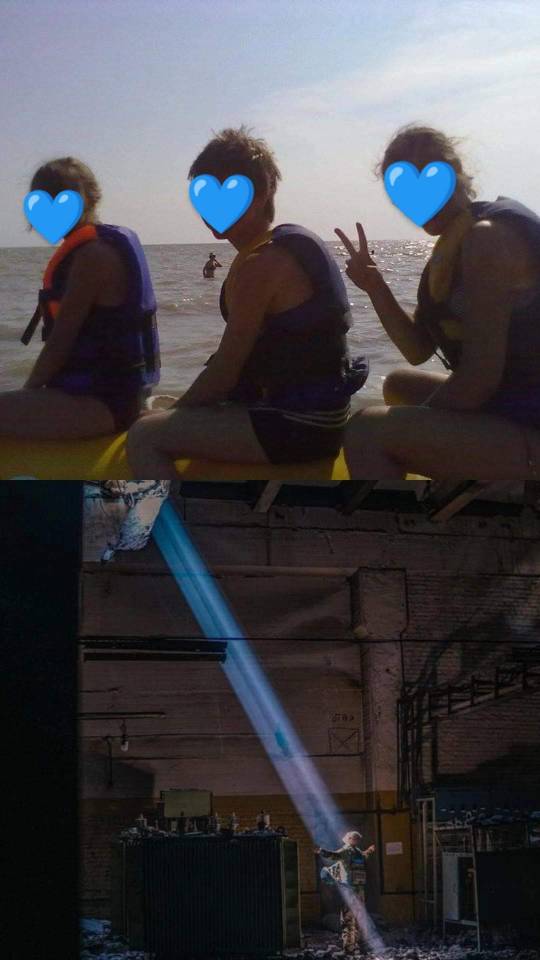
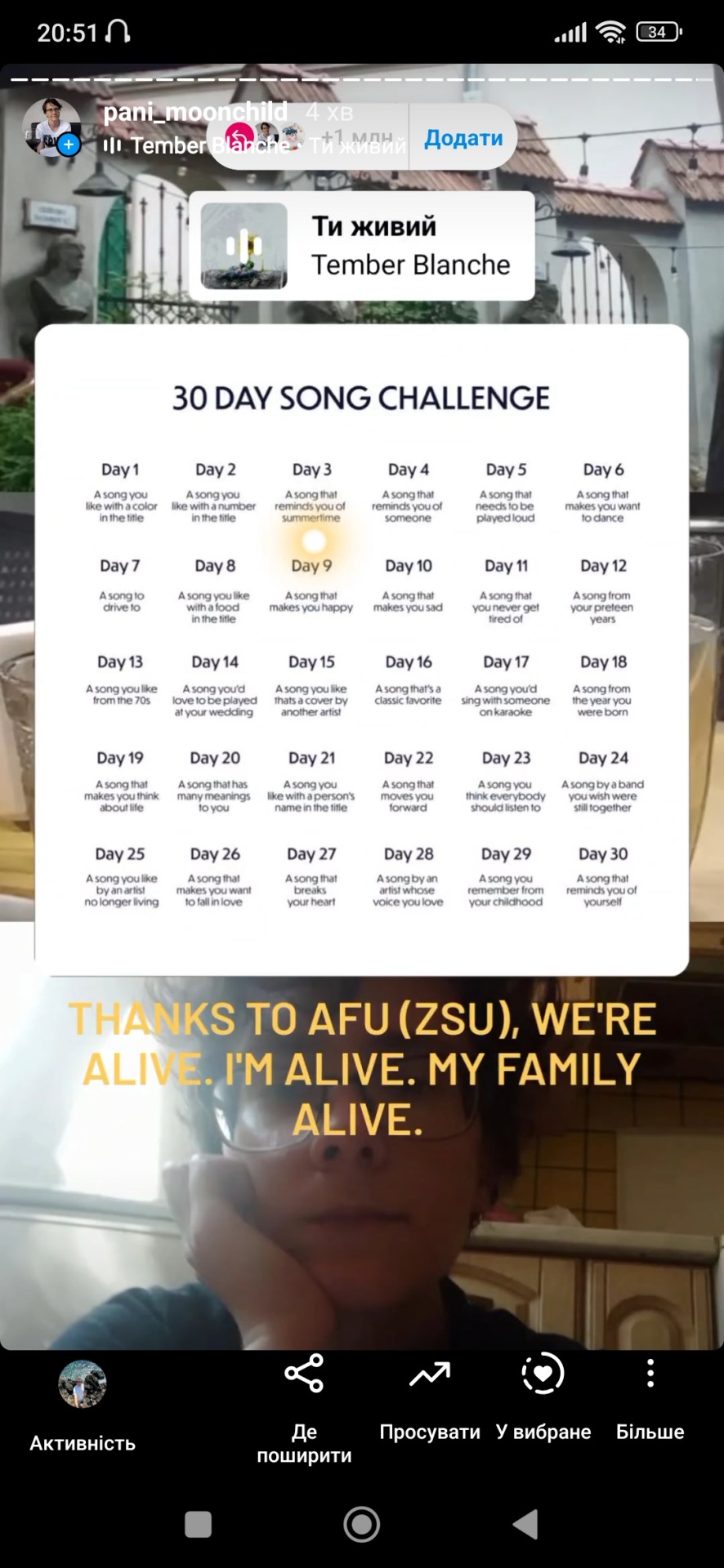
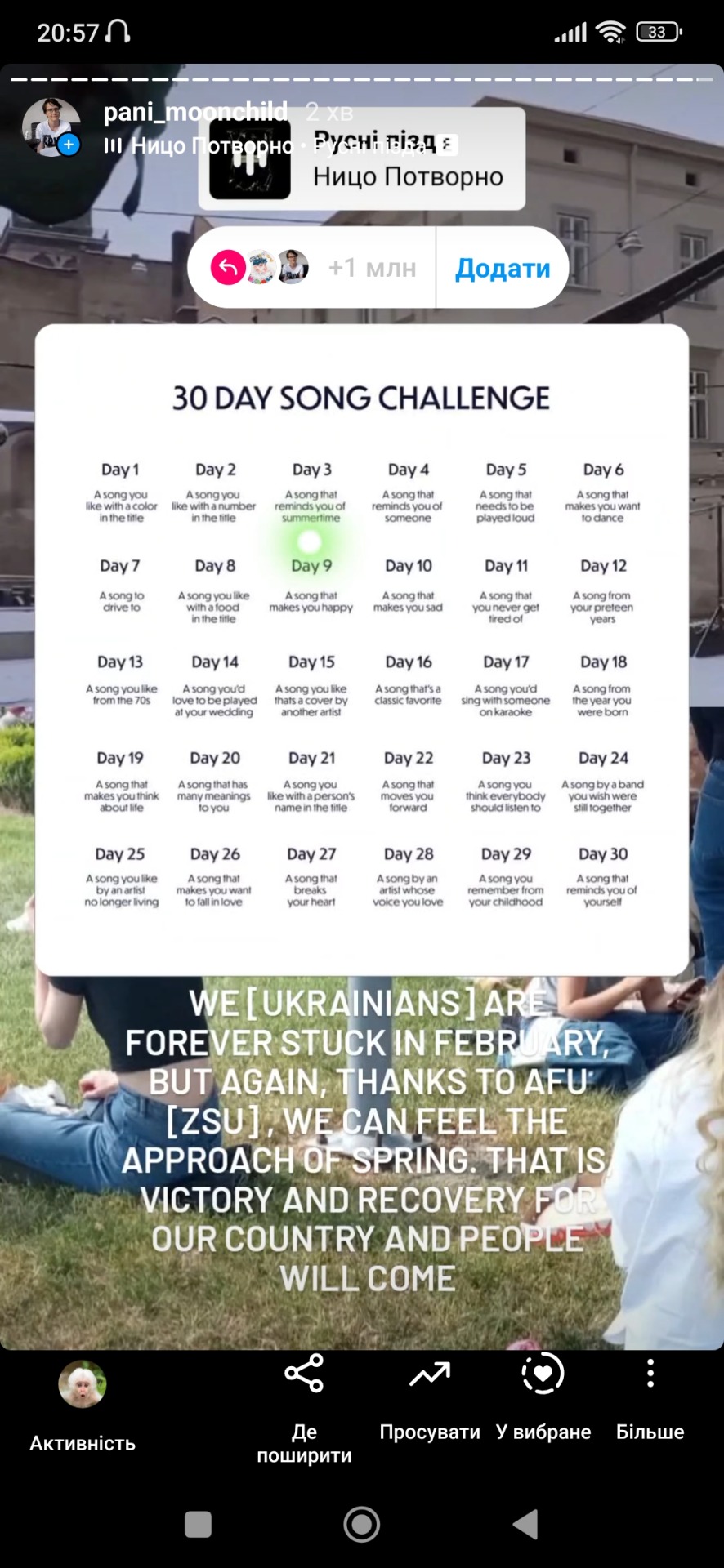
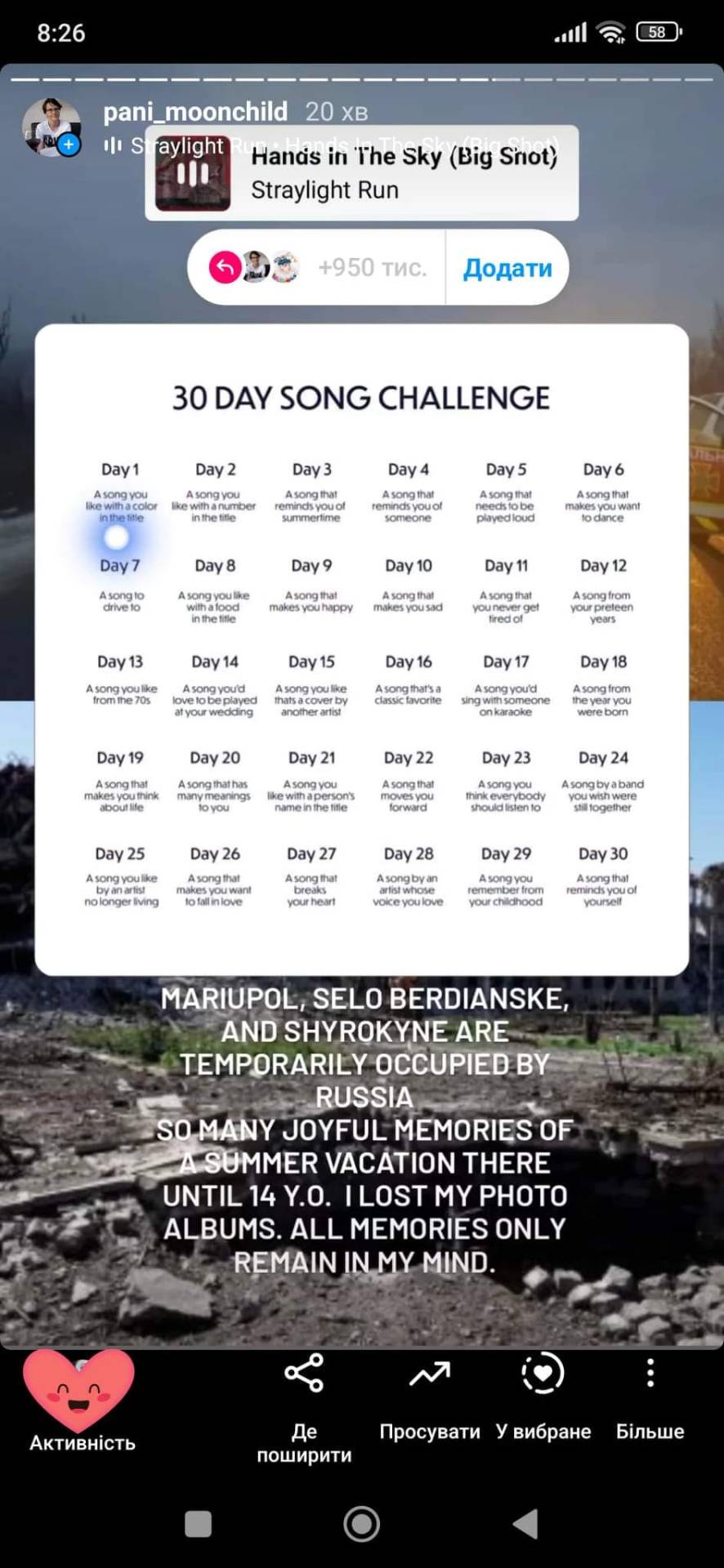
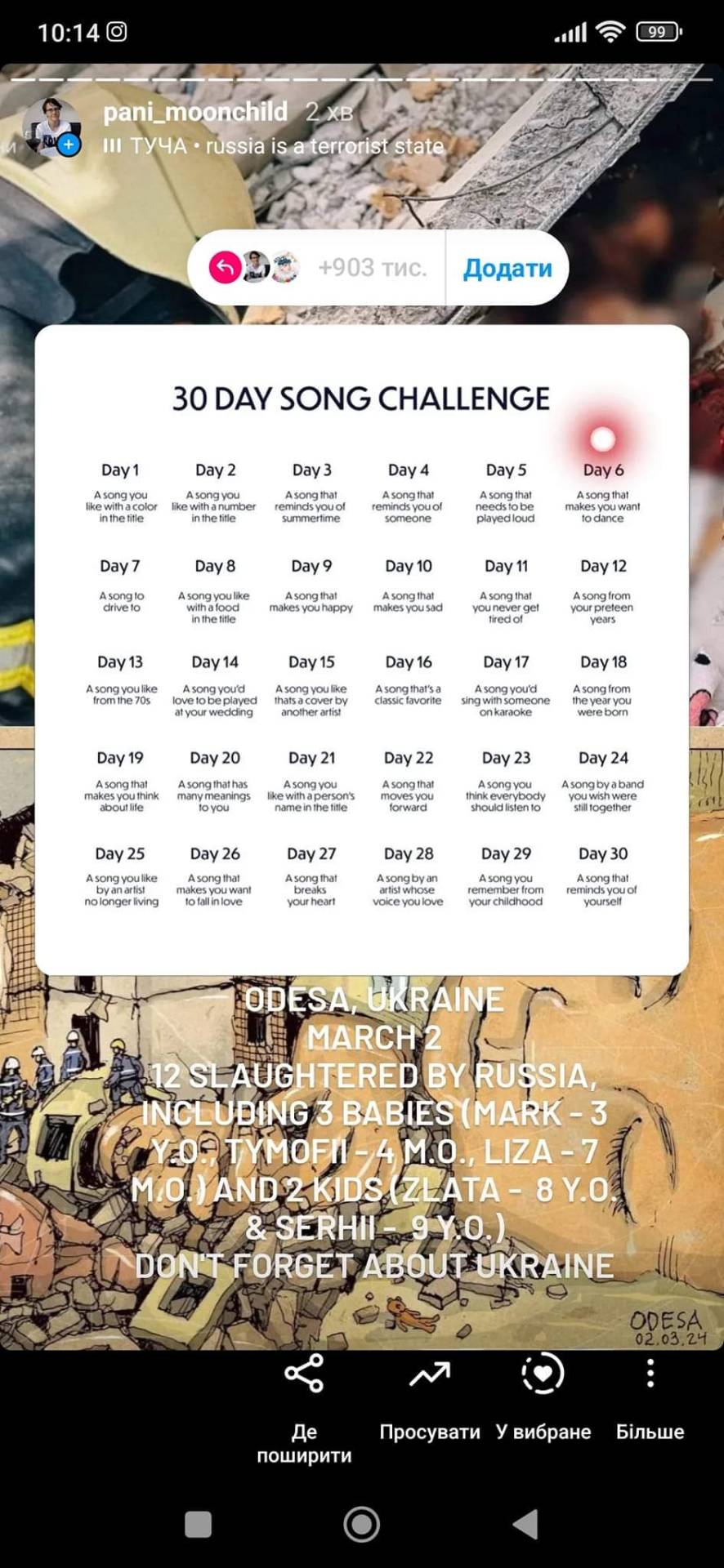
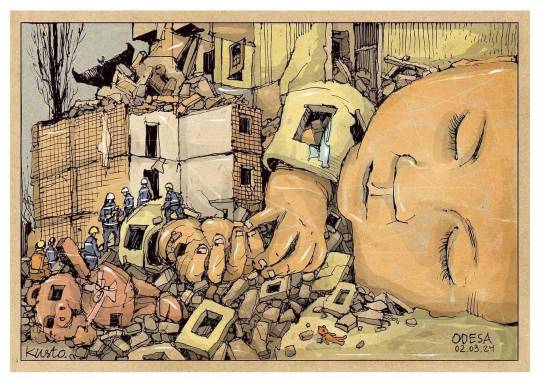
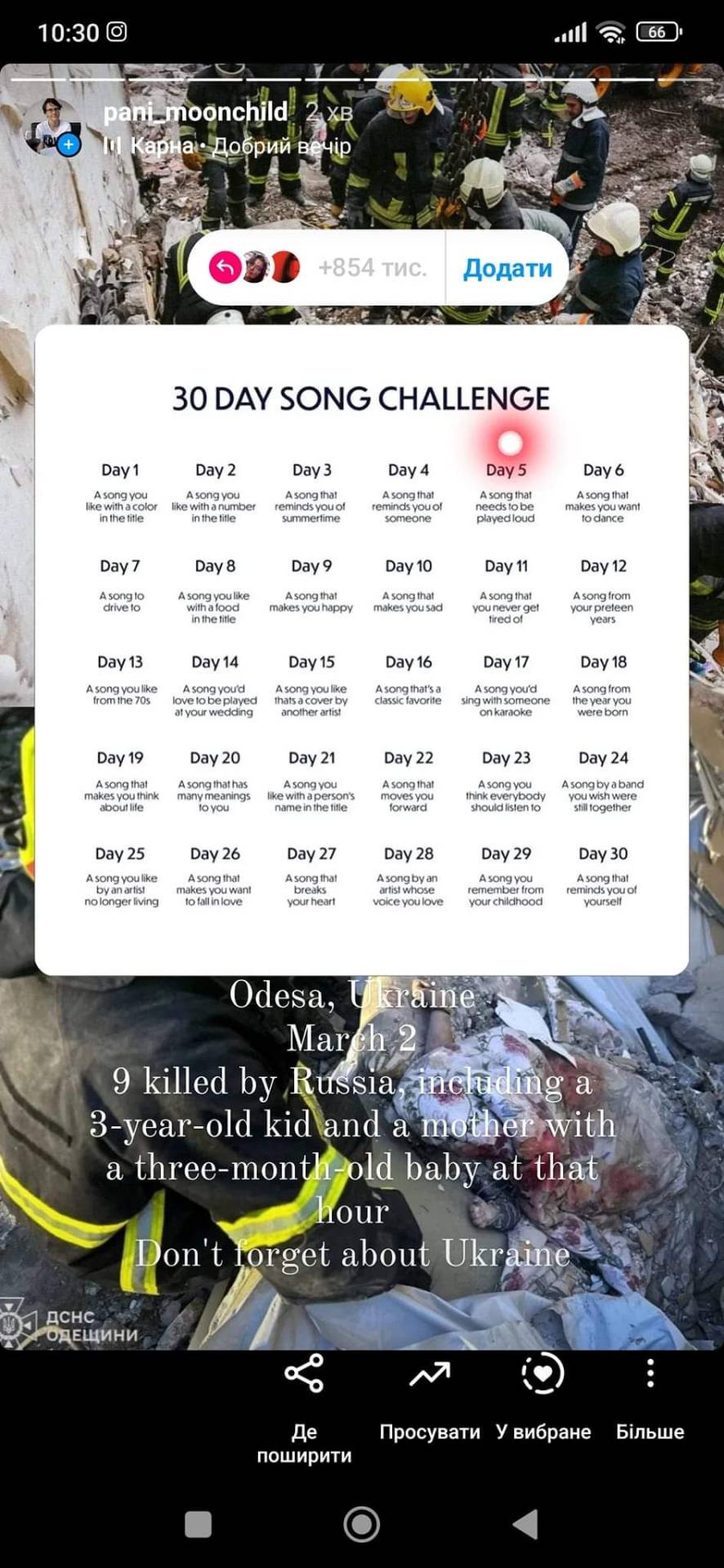
Part I
Ukrainians respect the diversity of their people. All form of love, skin color and religion don't matter to us. We are sincere, loving and courageous people. I recently rid of the shadow ban and took part in sng challenge. And of course I couldn't help but talk about the Russian-Ukrainian war. So I will share with you the songs like of ours and foreign artists and the events that fit them or happened that day. Today - Day 14: Piano Guys - Epiphany I can be creative because I thought that it would not be possible to mention us on the day of the wedding song. Fact: well-armed Ukrainian army - Ukrainians are protected and happier. Yesterday - Day 13: Aerothmith - Dream On How lovely, modern Mariupol was. I miss you. I wish I had taken our photo albums with us from Donetsk in 2014. Only memories remain. Tat picture of the last protest for Ukraine in Mariupol makes me devastatingly sad. Wait a little longer, you'll come back to the Homeland💙💛 Day 12: Asking Alexandria - Someone, Somewhere 10th of the March - Day of the national anthem in Ukraine. And my music taste is relatable too. Because lines "Even though I'm on my own, I know I'm not alone / 'Cause I know there's someone, somewhere praying that I make it home" hit close to home. Day 11: Disturbed - The Sound of Silence I barely see any mention of Nikopol that day. That's upsetting. We must keep reminding the world about Russian war crimes. Day 10: Skladno - Azovstal There's were manifestation about Free Azovstal Defenders in Ukraine and throughout the world. Mariupol has special place in my heart. I spent 10+ years of my life on summer vacation there and in the selo (village) of Berdyanske. Two photoes from there save only in Facebook. Others remained only as memories. Day 9: Tember Blanche - Ти живий (You are alive) & Ницо Потворно - Русні пизда Thanks to AFU, I can listen to our artists and live my life. Support Ukraine in the right way - arm us. Day 7: Straylight Run - Hands in the sky I felt broken 'cause Russia corrupted my second hometown basically and traumatized my old childhood memories. Day 6: Туча (Tucha) - russia is a terrorist state Rescueing operation finally ended in Odesa. Russia again killing as many Ukrainian as they can. But that day their targets were babies and kids. Nothing new but pain our people feel are agonizing. Day 5: Карна - Добрий вечір (Karna - Dobryy vechir) Next day after Russian terrorist attack in Odesa. Death toll have been increased.
#ukrart#ukraine#ukrtumblr#ukranian#Ukraine#russian invasion of ukraine#russia#russo ukrainian war#russia is a terrorist state#russia is the occupier#arm ukraine#stand with ukraine#genocide#stop the genocide#russian imperialism#russian colonialism#oscar#oscars#art#music#new music#український tumblr#украрт#українськемистецтво#український блог#український тамблер#україна#лгбт#lgbtqia#lgbtq community
23 notes
·
View notes
Text
The Ukrainian national anthem begins with the words “Ukraine has not yet perished,” hardly an optimistic beginning for any kind of song. But this is not the only anthem whose words do not inspire optimism. The Polish national anthem starts with the familiar line “Poland has not yet perished.” The words of the Polish anthem were written in 1797 and those of the Ukrainian were penned in 1862, so it is quite clear who influenced whom. But why such pessimism? In both cases, Polish and Ukrainian, the idea of the death of the nation stemmed from the experience of the late eighteenth century – the partitions of Poland and the liquidation of the Hetmanate. Like many other anthems, the Polish one was originally a marching song written for the Polish legions fighting under the command of the future emperor of France, Napoleon Bonaparte, in his Italian campaigns. The song was originally known as the “Dąbrowski mazurka,” named for a commander of the Polish troops, Jan Henryk Dąbrowski. Many of the Polish legionnaires, including the commander himself, had taken part in the Kościuszko Uprising, and the lyrics were meant to lift their spirits after the destruction of their state by the partitioning powers. The song’s second line asserts that Poland will not perish “as long as we are alive.” By associating the nation not with the state but with those who considered themselves its members, the Polish anthem gave hope not just to the Poles but also to representatives of other stateless nations. A new generation of patriots in Poland and Ukraine refused to accept the disasters of the previous century as the final verdict of their nations. Both Polish and Ukrainian activists promoted a new understanding of a nation as a democratic polity made up of citizen patriots rather than a territorial state.
Serhii Plokhy, The Gates of Europe: A History of Ukraine
8 notes
·
View notes
Text
Long text about why current war Russia wages on Ukraine is not about territory and why modern Russia's ideology can be described as fascist.

We may safely assume that this was not a one-off episode and that punishment for speaking Ukrainian is a systematic practice in the occupied parts of Ukraine's south. Voevoda himself claims that it helped to "cleanse [Mariupol and Berdiansk] from khokhol shit."
("khokhol" is a slur for Ukrainians)
Voevoda acknowledged this in a conversation with prominent pro-war blogger Kirill Fedorov, who recently called Ukrainians "biological trash." Such language in a war context is a call for action. This kind of eliminationist rhetoric is ideologically driven.
This ideology, officially embraced by the Kremlin rather recently, implies that the very articulation of Ukrainian distinctiveness is intrinsically political. "Ukrainianness," in other words, is seen as a collective mindset that intends to subvert or destroy all things Russian.
According to this ideology, Ukraine is "anti-Russia" not because its leadership has taken an "anti-Russian" stance, but because it emerged as a political idea within "historical" Russia with the sole aim of weakening and dismantling it.
Importantly, this view represents a major departure from both the tsarist and Soviet traditions. The rhetoric of Russia’s war, which views Ukrainian identity as an anti-Russian conspiracy, is rooted in late imperial ultra-nationalist – one might say proto-fascist – ideologies.
These ideologies emerged from fin-de-siècle fears and anxieties about imperial disintegration, national degeneration, and racial deterioration in the borderland regions of the Russian Empire.
These ideas were rediscovered in the late 1990s–early 2000s by Russian revanchists and made their way into the corridors of the Kremlin. Surkov claimed, "There is no Ukraine. There's Ukrainianness. That is, a specific disorder of the mind." This is where Putin picked them up.
"De-Nazification is inevitably de-Ukrainisation," Timofei Segeitsev wrote in 2022. A recent programmatic text by the TASS agency asserted that Ukraine's "Nazism" is rooted in "the national historical myth of Ukrainian independence from Russia."
TASS essentially equates "Nazism" with "Ukrainianness," asserting that "Nazism in Ukraine began to be systematically inculcated at school after the publication of the monograph by Mykhailo Hrushevsky." Hrushevsky, a left-wing historian whose academic work inspired early-20th-century Ukrainian national activists to "rediscover" their homeland's unique historical experience, is now portrayed by the Kremlin's main outlet as the Ur-father of Ukrainian Nazism.
What triggers the Kremlin the most is not just Ukraine's struggle against its domination, but Ukraine's very existence—from its state symbols (notably, Russia's Foreign Ministry claimed its national anthem promotes "Nazi" ideas) to its language, effectively banned in occupied parts of Zaporizhzia and Kherson regions. Should Russian troops capture more Ukrainian territory, genocidal violence could escalate dramatically, with no shortage of willing perpetrators.
#colonialism#imperialism#fascism#nazism#neo nazis#neo fascism#ruscism#russian imperialism#russian colonialism#russian fascism#genocide#ukraine#russian culture#russian invasion of ukraine#russia is a terrorist state#україна#укртумбочка#укртамблер#укртумба
12 notes
·
View notes
Text
The pictures are haunting. There are portraits of Ukrainian men and women who have spent months and years in Russian captivity: soldiers, civilians, paramedics and volunteers. All experienced torture and brutal treatment. Many carry physical scars from their time as inmates. They are among the prisoners of war swapped since 2014, when Vladimir Putin began his Ukraine invasion, with a covert takeover in the east.
In 2019, the Ukrainian photojournalist Zoya Shu began photographing those freed from Russian detention. Over five years, she spent time with former prisoners of war (PoWs) in their homes, talking to them about their life stories and listening to their harrowing accounts of beatings and other forms of daily abuse.
“They suffered. I see them not as victims but as survivors. What they experienced is horrendous,” she says.
Some of those she photographed have terrible wounds. In 2014, Russian “separatist” fighters carved a swastika on the back of a local man, Bogdan Sergiets, in the eastern city of Donetsk. They accused him of supporting Ukraine and being a “Nazi”. Another photo is a portrait of Aiden Aslin, a British volunteer captured in April 2022 while fighting for Ukraine. He and his fellow British prisoner Shaun Pinner, who were both threatened with execution, say they were beaten, stabbed with knives and electrocuted.
Other wounds are less conspicuous. Many prisoners, both men and women, said they were subjected to sexual violence and rape. In Russia and occupied areas of Ukraine, interrogators used a wind-up military field telephone to administer electric shocks, attaching crocodile clips to genitals and nipples.
“There is physical and psychological trauma,” says Shu. “It’s difficult to deal with, and profound. It takes a long time to heal.”
Another torture method is starvation. One former prisoner of war, Borys, said he lost 45kg (99lb) during two years in various camps: “I got very thin. When I was released I was so weak I couldn’t put my leg on to a step.”
Borys says a fellow inmate was so emaciated he became unable to walk and “went mad”, adding: “He couldn’t lift his arms. He stopped eating. They took him away. We don’t know what happened [to him].”
Borys says his captors hit him with plastic pipes and shocked him with stun guns. This was done in a corridor, where there were no CCTV cameras to record the abuse. One day, his guards said his situation would improve if he gave an interview to a Russian propaganda TV channel. They also tried to “re-educate” him.
“They loved to teach us about ‘history’ – we were ‘fascists’. They told us Ukraine was always a part of Russia and didn’t exist,” Borys says.
Other ex-prisoners said they were made to sing the Russian national anthem and recite patriotic poems and songs from Russia. “One goal is to destroy Ukrainian identity,” Shu says, adding that a soldier from western Ukraine who could not speak Russian received extra punishments.
“There is a pattern of constant and systemic violations [of human rights],” Shu says, calling this “state policy”.
Some former detainees have successfully rebuilt their lives. Others remain haunted by their experiences and suffer from depression and panic attacks. According to Kyiv’s Coordination Headquarters for the Treatment of Prisoners of War, 3,405 people have been returned from captivity, including 95 PoWs on 17 July. Tens of thousands of Ukrainians, military and civilians, are believed to remain in Russian jails.
The exact tally of PoWs is unknown. The figure includes about 1,500 soldiers captured in May 2022 when the garrison defending the Azovstal steelworks in Mariupol surrendered. The Kremlin refuses to give a comprehensive list of the people it holds, adding to the agony of families whose loved ones went missing in action.
Shu is critical of international organisations that help detainees. In her view, they have failed to pressure the Kremlin to improve dire conditions for prisoners and to end widespread abuse.
“Where is the Red Cross? Where is the UN? Where is everybody?” she asks. “There doesn’t seem to be much activity or urgency. The level of brutality and torture in Russian prisons requires immediate action.”
28 notes
·
View notes
Text
Somewhere there's a hauntingly beautiful symphony where Pavel Kushnir belongs.
Rest in peace 🕊️

Kushnir was born in Tambov, central Russia, where his father Mikhail was a pianist and educator, and his mother a music school teacher. He started playing piano at the age of two and, at just 17, gave a remarkable two-and-a-half-hour concert featuring the 24 preludes and fugues by composer Dmitri Shostakovich. Later that year, he was admitted to the Moscow Conservatory, where classmate Julia Wertman says he cultivated a “dissident image”, often wearing a shabby coat and black clothes, with a half-litre bottle of vodka sticking out of a pocket. Asked in a 2005 interview what composition he would never perform, he replied: "The Russian national anthem."
Arrested for 4 social media posts objecting to the war in Ukraine. Died from a hunger strike in protest. 💜
#pavel kushnir#philharmonic#piano#russia#war in ukraine#zelensky#political dissidents#putin#free speech#russian invasion of ukraine#kremlin#prisoner#siberia#agent mulder#x files#Olga Romanova#human rights#telegram#operational reports#kursk#music#musician#pianist#classical music#rest in peace#conscientious objectors#moscow conservatory
8 notes
·
View notes